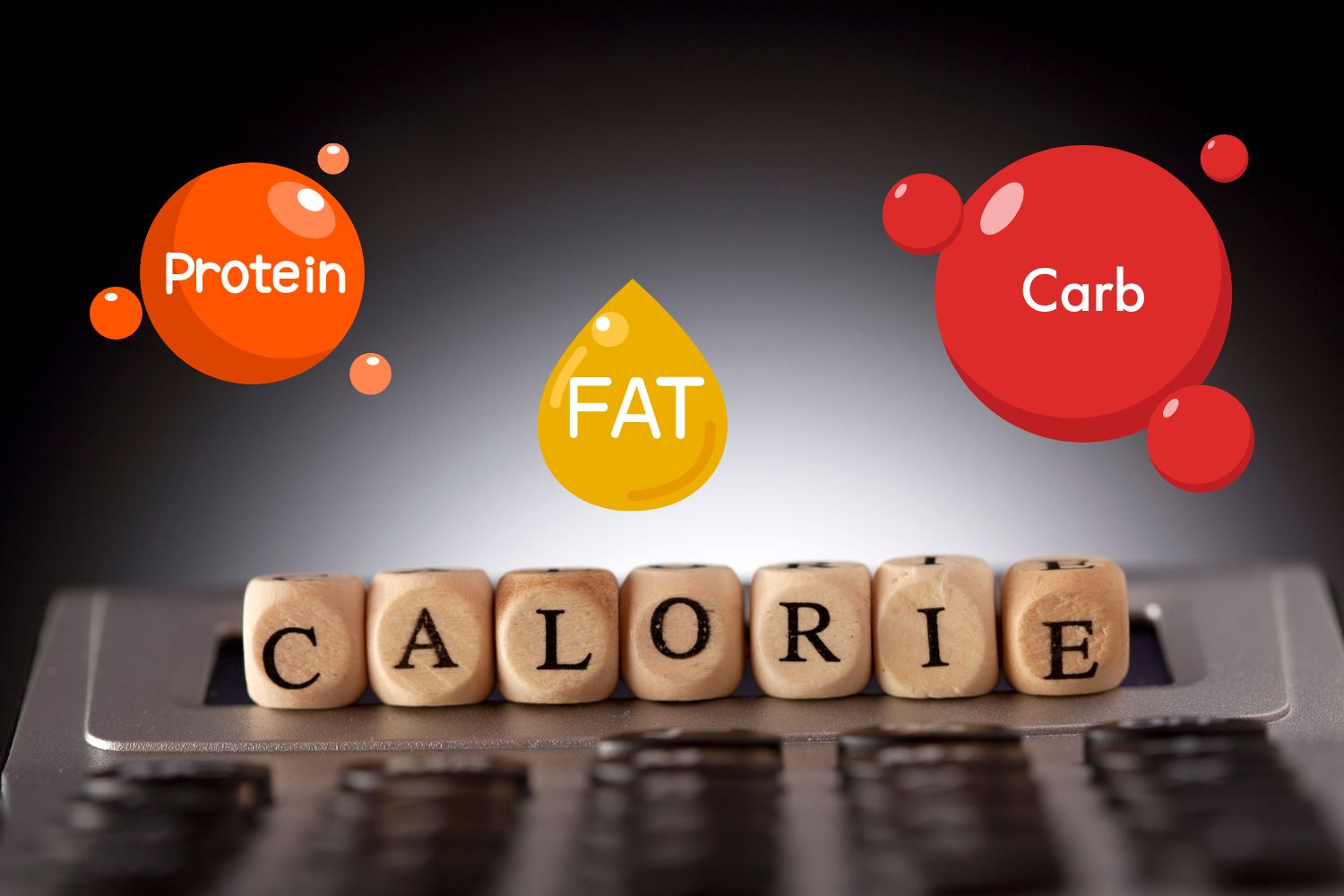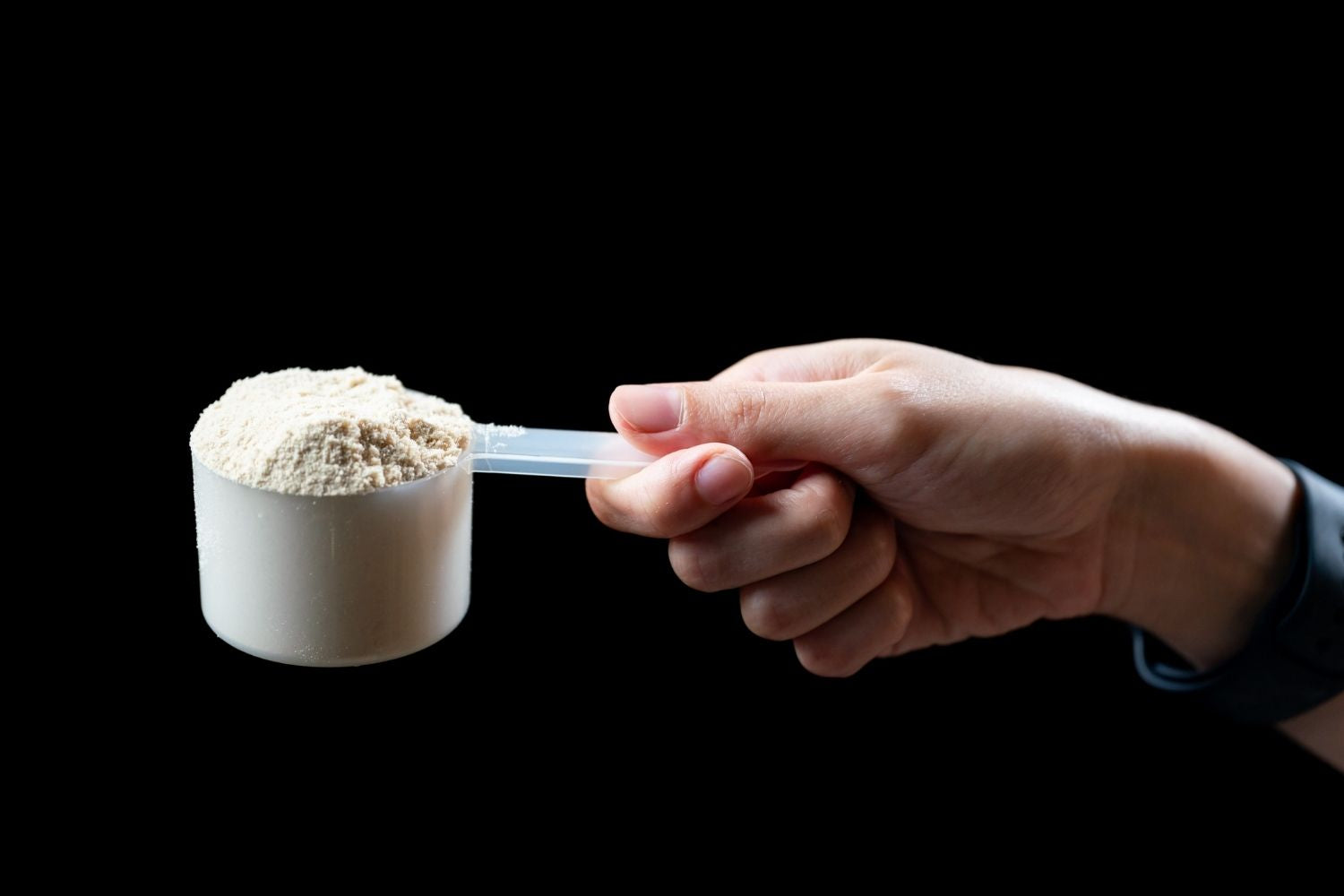Maximize Your Performance
Are you ready to take your workouts to the next level? In order to unlock your full workout potential, it's time to dive into the world of sports nutrition. A strategic approach to nutrition can make a world of difference in maximizing your athletic performance. Whether you're a professional athlete, a weekend warrior, or just someone looking to enhance their fitness routine, understanding the role of nutrition in optimizing your workouts is essential.
Proper sports nutrition is the foundation for achieving peak physical performance. When you fuel your body with the right nutrients, you can unlock a multitude of benefits that will transform your workout experience. From increased energy and endurance to faster recovery and muscle growth, the power of sports nutrition cannot be overstated. By aligning your dietary habits with your fitness goals, you'll be able to push your limits, overcome plateaus, and reach new heights in your athletic pursuits.

In this comprehensive guide, we'll equip you with the knowledge and tools to master sports nutrition and unlock your full workout potential. We'll explore the key macronutrients and micronutrients that fuel athletic performance, dive into pre-workout and post-workout fuelling strategies, and address the importance of hydration and supplementation. By the end of this article, you'll feel empowered to make informed decisions about your nutrition and take your workouts to new levels of success.
Fuel your body with the right nutrients, and you'll fuel your mind and performance.
Table of Contents
- Understanding Macronutrients and Micronutrients
- Pre-Workout Nutrition Tips
- Post-Workout Nutrition Tips
- Hydration and Its Impact on Athletic Performance
- The Role of Supplements in Sports Nutrition
- Meal Planning for Athletes
- Common Myths and Misconceptions About Sports Nutrition
- Sports Nutrition for Specific Sports
- Conclusion: Taking Your Workouts to the Next Level with Proper Nutrition
Understanding Macronutrients and Micronutrients
At the heart of sports nutrition lies a deep understanding of macronutrients and micronutrients. These essential nutrients work together to provide your body with the energy, building blocks, and recovery support it needs to thrive during your workouts and beyond.
Macronutrients, which include carbohydrates, proteins, and fats, are the primary sources of energy for your body. Carbohydrates are the body's preferred fuel source, providing a readily available source of energy for your muscles and brain. Proteins are the building blocks of muscle tissue, supporting growth, repair, and recovery. Fats play a crucial role in hormone production, energy storage, and cell membrane function.
Micronutrients, on the other hand, are the vitamins and minerals that support a wide range of physiological processes. These include vitamins like A, C, and B-complex, as well as essential minerals such as iron, calcium, and magnesium. Micronutrients play a vital role in everything from energy metabolism and immune function to bone health and muscle contraction. By ensuring that you're consuming a balanced diet rich in micronutrients, you'll be able to optimize your body's performance and recovery capabilities.

Understanding the optimal ratios and timing of macronutrient and micronutrient intake is key to unlocking your full workout potential. Whether you're fuelling up before a high-intensity workout or replenishing your body after a gruelling training session, getting the right balance of these essential nutrients can make all the difference in your athletic performance and overall well-being.
Get indepth information about macronutrients and micronutrients.
Check out Nutrascia's Calorie Calculator to help track your macronutrient intake.
Pre-Workout Nutrition Tips
Proper pre-workout nutrition is crucial for maximizing your workout performance and ensuring that you have the energy and focus to push your limits. The right pre-workout fuelling strategy can help you feel more energized, improve your endurance, and enhance your overall workout experience.
One of the most important pre-workout considerations is carbohydrate intake. Carbohydrates are the body's primary source of fuel, and they play a crucial role in providing the energy your muscles need to power through your workouts. Aim to consume a mix of complex carbohydrates, such as whole grains, oats, or sweet potatoes, about 30-60 minutes before your workout. This will help to steadily release energy and sustain your performance throughout your session.
In addition to carbohydrates, it's important to include a source of protein in your pre-workout meal or snack. Protein helps to preserve and repair muscle tissue, which can be particularly important for strength-based activities. Consider options like lean meats, eggs, or plant-based protein sources like Greek yogurt or nut butters. The combination of carbohydrates and protein will provide a well-rounded energy boost and support muscle recovery.

Don't forget to stay hydrated as well. Drinking water or a sports drink before your workout can help to prevent dehydration and maintain optimal fluid balance, which is essential for athletic performance. Aim to consume 16-24 ounces of fluid about 2-4 hours before your workout, and continue to sip on water throughout your session.
By focusing on the right pre-workout nutrition strategies, you'll be able to fuel your body for success, increase your endurance, and push your limits during your workouts. Experiment with different pre-workout meal and snack combinations to find what works best for your individual needs and preferences.
The only bad workout is the one that didn’t happen. Get fueled and be ready for the next one.

Boost your performance with Nutrascia Pro Boost Pre-Workout.
Post-Workout Nutrition Tips
Once you've completed your workout, it's crucial to focus on replenishing your body with the right nutrients to support recovery and muscle growth. Proper post-workout nutrition can help to reduce muscle soreness, accelerate the repair and rebuilding of muscle tissue, and prepare your body for your next workout.
One of the most important post-workout considerations is the timing of your nutrient intake. The window of opportunity for optimal nutrient absorption and utilization is typically within the first 30-60 minutes after your workout. During this time, your muscles are primed and ready to absorb the necessary nutrients for recovery and growth.
When it comes to post-workout nutrition, carbohydrates and protein are the dynamic duo. Carbohydrates help to replenish the glycogen stores that were depleted during your workout, while protein provides the building blocks for muscle repair and growth. Aim for a ratio of 3:1 or 4:1 carbohydrates to protein, such as a smoothie made with fruit, yogurt, and a scoop of protein powder.
In addition to carbohydrates and protein, it's important to consider the role of hydration and electrolyte replenishment. During your workout, you've likely lost a significant amount of fluids and electrolytes through sweat. Rehydrating with water and electrolyte-rich beverages, such as sports drinks or coconut water, can help to restore fluid balance and support overall recovery.

By focusing on strategic post-workout nutrition, you'll be able to maximize the benefits of your hard work and set the stage for even greater gains in the future. Experiment with different post-workout meal and snack combinations to find what works best for your individual needs and preferences.
The pain you feel today will be the strength you feel tomorrow.
 Try Nutrascia Pro Whey Protein for faster recovery.
Try Nutrascia Pro Whey Protein for faster recovery.

Replenish with Nutrascia Fast-D Carb after your workout.
Hydration and Its Impact on Athletic Performance
Proper hydration is a crucial component of sports nutrition and can have a significant impact on your athletic performance. Adequate fluid intake helps to regulate body temperature, maintain optimal muscle function, and support overall physical and cognitive performance.
During exercise, your body loses fluids and electrolytes through sweat. If you don't replace these lost fluids and electrolytes, you can experience dehydration, which can lead to a host of negative consequences, such as fatigue, muscle cramps, decreased endurance, and impaired cognitive function.
To ensure optimal hydration, it's recommended to drink water or a sports drink before, during, and after your workouts. The specific amount of fluid you need will depend on factors like the duration and intensity of your workout, as well as the environmental conditions. As a general guideline, aim to drink 16-24 ounces of fluid about 2-4 hours before your workout, and continue to sip on water or a sports drink throughout your session.

In addition to water, electrolytes like sodium, potassium, and magnesium play a crucial role in maintaining fluid balance and supporting muscle function. Electrolyte-rich beverages, such as sports drinks or coconut water, can help to replenish these essential minerals and support your overall athletic performance.
By prioritizing hydration and electrolyte replenishment, you'll be able to maintain optimal physical and cognitive function throughout your workouts, recover more effectively, and push your limits to new heights. Experiment with different hydration strategies and find what works best for your individual needs and preferences.
Water is the driving force of all nature. "Leonardo Da Vinci"
Learn more about hydration in our Hydration and Performance blog post.
The Role of Supplements in Sports Nutrition
While a balanced, nutrient-rich diet should be the foundation of your sports nutrition plan, supplements can play a complementary role in supporting your athletic performance and recovery. When used judiciously and in conjunction with a well-rounded dietary approach, certain supplements can provide an extra boost to your workout routine.
One of the most well-known and widely used supplements in the sports nutrition realm is protein powder. Protein supplements can help to support muscle growth, repair, and recovery, particularly when consumed in the post-workout window. Look for high-quality protein sources, such as whey, casein, or plant-based options, and consider incorporating them into your post-workout smoothies or shakes.
Another popular supplement for athletes is creatine, which has been shown to enhance high-intensity exercise performance and support muscle growth. Creatine works by increasing the availability of phosphocreatine, a compound that helps to supply energy to your muscles during intense bursts of activity.

Omega-3 fatty acids, found in supplements like fish oil or algae-based sources, can also be beneficial for athletes. These healthy fats have been linked to reduced inflammation, improved recovery, and enhanced cardiovascular function, all of which can contribute to better athletic performance.
When it comes to supplements, it's important to do your research, consult with a qualified healthcare professional, and choose high-quality, third-party tested products. Avoid making supplements the primary focus of your sports nutrition plan, and instead, use them to complement a well-balanced, nutrient-dense diet.
 Enhance strength with Nutrascia Mono Pure Creatine.
Enhance strength with Nutrascia Mono Pure Creatine.
Meal Planning for Athletes
Effective meal planning is a cornerstone of sports nutrition and can make a significant difference in your athletic performance and recovery. By taking a strategic approach to your meals and snacks, you can ensure that your body is consistently fuelled with the right nutrients to support your fitness goals.
One of the keys to successful meal planning for athletes is to focus on nutrient-dense, whole food sources. This means prioritizing foods like lean proteins, complex carbohydrates, healthy fats, fruits, and vegetables, which provide a comprehensive array of macronutrients and micronutrients. Avoid heavily processed, high-sugar, or high-fat foods, as these can negatively impact your energy levels and recovery.
When it comes to meal timing, it's important to consider the specific demands of your sport or workout routine. For example, endurance athletes may benefit from more frequent, smaller meals to maintain steady energy levels, while strength athletes may require larger, protein-rich meals to support muscle growth and repair. Experiment with different meal patterns and find what works best for your individual needs.

Meal prepping can also be a game-changer for athletes, as it allows you to have healthy, nutrient-dense meals and snacks readily available, even on your busiest days. Set aside time each week to plan, shop, and prepare your meals, ensuring that you always have the right fuel on hand to support your training and recovery.
By taking a proactive approach to meal planning, you'll be able to fuel your body with the right nutrients at the right times, maximize your workout performance, and support your overall health and well-being as an athlete.
Failing to Plan is Planning to Fail. "Alan Lakein"

Achieve your goals with Nutrascia’s NuFit Fitness and Diet Plan.
Common Myths and Misconceptions About Sports Nutrition
As the field of sports nutrition continues to evolve, there are still many myths and misconceptions that can lead to confusion and suboptimal dietary practices. It's important to separate fact from fiction to ensure that you're making informed decisions about your nutrition and achieving the best possible results from your workouts.
One common myth is that carbohydrates should be avoided or severely restricted for athletes. While it's true that some athletes may benefit from a lower-carb approach, carbohydrates are the body's primary source of fuel and play a crucial role in supporting athletic performance and recovery. Cutting carbs too drastically can lead to fatigue, decreased endurance, and impaired muscle function.
Another misconception is that protein supplements are the key to building muscle. While protein is essential for muscle growth and repair, it's important to remember that a balanced diet with a variety of high-quality protein sources, along with proper training and recovery, is the foundation for muscle development. Supplements can be a helpful addition, but they should not be the sole focus of an athlete's nutrition plan.
Additionally, many people believe that sports drinks are necessary for all workouts, regardless of duration or intensity. While sports drinks can be beneficial for prolonged, high-intensity exercise, they may not be necessary for shorter, lower-intensity workouts. In these cases, water and a balanced, nutrient-rich diet may be sufficient to meet your hydration and fuelling needs.

By understanding and debunking these common myths, you'll be able to make more informed decisions about your sports nutrition and optimize your athletic performance. Remember to always consult with a qualified healthcare professional or sports nutritionist to develop a personalized plan that aligns with your individual needs and goals.
Myths which are believed in tend to become true. "George Orwell"
Sports Nutrition for Specific Sports
While the general principles of sports nutrition apply across various athletic disciplines, there are some nuances and considerations that are specific to different sports and activities. Understanding the unique nutritional requirements of your chosen sport can help you fine-tune your approach and maximize your performance.
For endurance sports, such as running, cycling, or swimming, the focus is often on maintaining steady energy levels and supporting recovery. These athletes typically require a higher carbohydrate intake to fuel their prolonged efforts, as well as a focus on hydration and electrolyte replenishment. Incorporating nutrient-dense carbohydrate sources, like whole grains, fruits, and vegetables, can help to sustain energy throughout long training sessions and events.
In contrast, athletes engaged in strength-based sports, like weightlifting or bodybuilding, may benefit from a higher protein intake to support muscle growth and repair. These athletes should also pay close attention to their carbohydrate and fat intake, as they play a crucial role in providing the energy and hormonal support necessary for building and maintaining lean muscle mass.
For team sports, such as soccer, basketball, or hockey, the nutritional demands can be more varied, as athletes may need to balance the energy requirements of both aerobic and anaerobic efforts. These athletes may benefit from a balanced approach that includes a mix of carbohydrates, proteins, and healthy fats to fuel their diverse training and competition demands.

Regardless of the sport, it's important to remember that each athlete is unique, and the optimal sports nutrition plan may vary based on individual factors, such as age, gender, body composition, and training intensity. Working with a qualified sports nutritionist can help you develop a personalized approach that aligns with your specific athletic goals and performance needs.
Proper Nutrition is the Difference between Achievers and every one else.
Conclusion: Taking Your Workouts to the Next Level with Proper Nutrition
In conclusion, mastering sports nutrition is the key to unlocking your full workout potential. By understanding the role of macronutrients and micronutrients, implementing strategic pre-workout and post-workout fuelling strategies, and prioritizing hydration and supplementation, you'll be able to transform your athletic performance and reach new heights in your fitness journey.
Whether you're a professional athlete, a weekend warrior, or simply someone looking to enhance their fitness routine, the power of sports nutrition cannot be overstated. By making informed dietary choices and aligning your nutrition with your fitness goals, you'll be able to experience increased energy, improved endurance, faster recovery, and greater muscle growth.
Remember, there is no one-size-fits-all approach to sports nutrition, and it's essential to experiment and find what works best for your individual needs and preferences. Consult with a qualified healthcare professional or sports nutritionist to develop a personalized plan that sets you up for success.
So, are you ready to take your workouts to the next level? Embrace the transformative power of sports nutrition and unlock your full potential. With the right fuelling strategies and a commitment to optimal nutrition, the possibilities are endless. Let's embark on this journey together and elevate your athletic performance to new heights.
Frequently Asked Questions
Why is pre-workout nutrition important?
Pre-workout nutrition provides the energy and nutrients your body needs to perform at its best during exercise.
How soon after a workout should I eat?
It's best to consume a meal or snack containing protein and carbohydrates within 30-60 minutes of finishing your workout.
What macronutrients are important for sports nutrition?
Carbohydrates, proteins, and fats are essential macronutrients for fueling, muscle growth, and recovery.
How much water should I drink during exercise?
Staying hydrated is crucial during workouts. Aim to drink water before, during, and after exercise to avoid dehydration.
Are supplements necessary for athletes?
Supplements can help athletes reach their goals, but they should be used alongside a balanced diet.
What are common myths about sports nutrition?
Common myths include misconceptions about carbs making you gain fat or that protein is only for bodybuilders.
How can I plan meals for optimal athletic performance?
Meal planning should include a balance of macronutrients, timed appropriately around training sessions for optimal results.
Does sports nutrition differ for specific sports?
Yes, different sports have specific nutritional needs. Endurance sports may require more carbohydrates, while strength sports need more protein.
Takeaways
- ✔ Understanding macronutrients and micronutrients is essential for performance.
- ✔ Proper pre-workout nutrition boosts energy and endurance.
- ✔ Post-workout nutrition aids muscle recovery and growth.
- ✔ Hydration supports athletic performance and cognitive function.
- ✔ Supplements complement a balanced diet for optimal performance.
- ✔ Meal planning is key for athletes to maintain proper nutrition.
- ✔ Debunk common myths to make informed nutrition choices.
- ✔ Each sport has unique nutritional needs that should be addressed.
Dr. Mohamed Yosef
Clinical Nutrition Specialist and Founder of Nutrascia.




Leave a comment
All comments are moderated before being published.
This site is protected by hCaptcha and the hCaptcha Privacy Policy and Terms of Service apply.